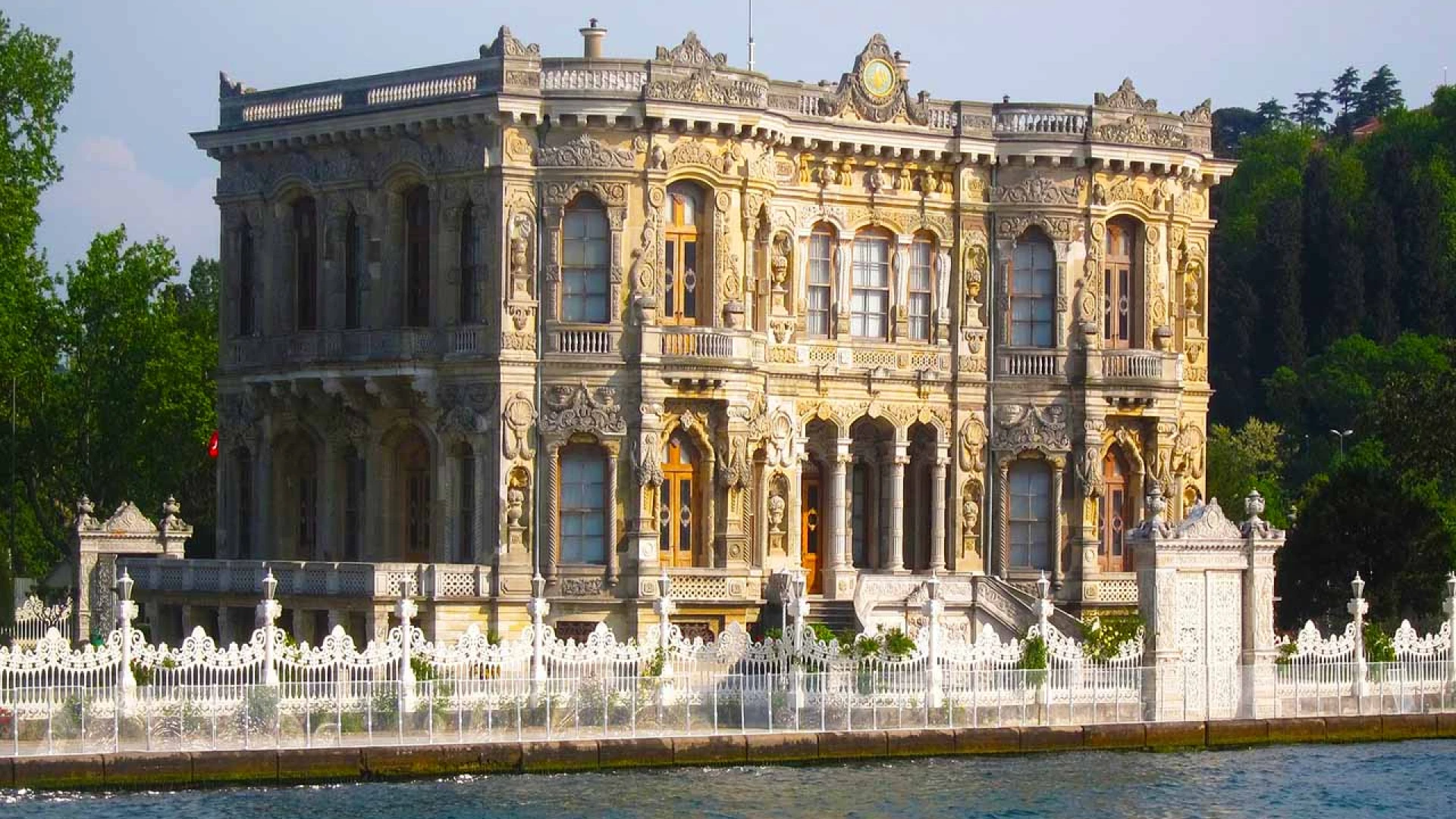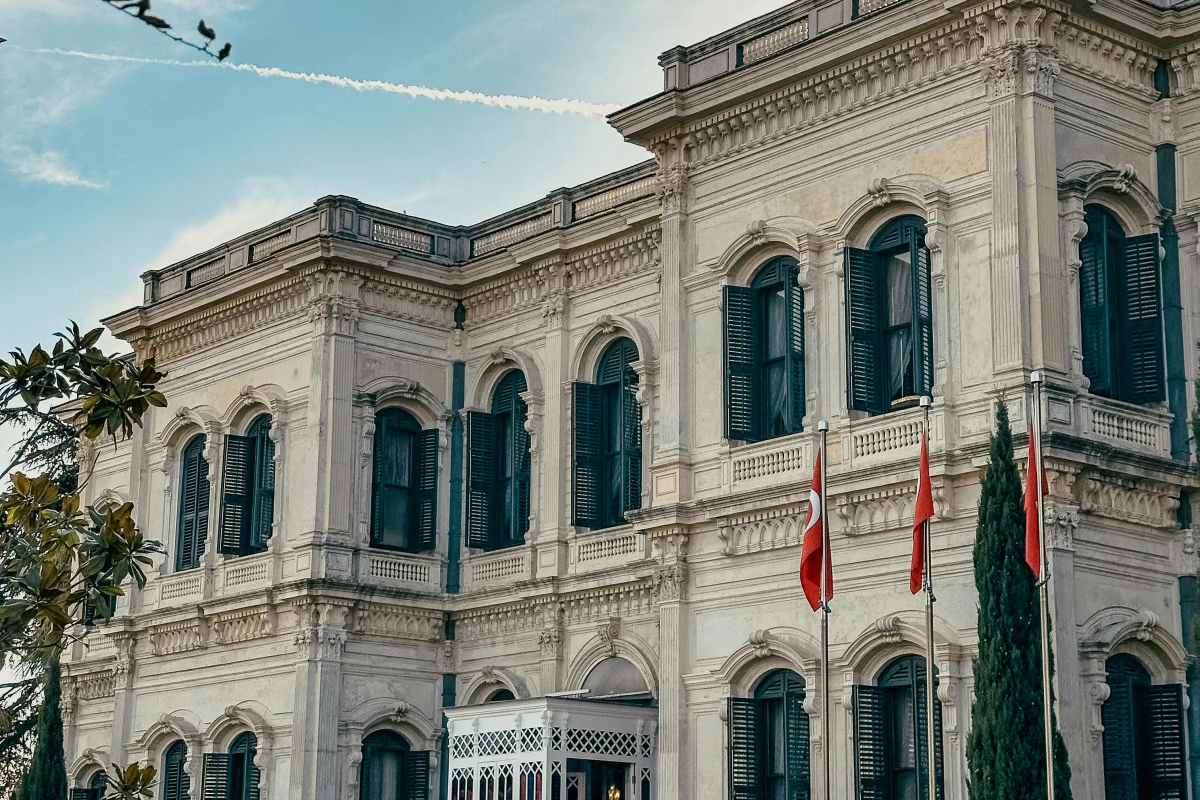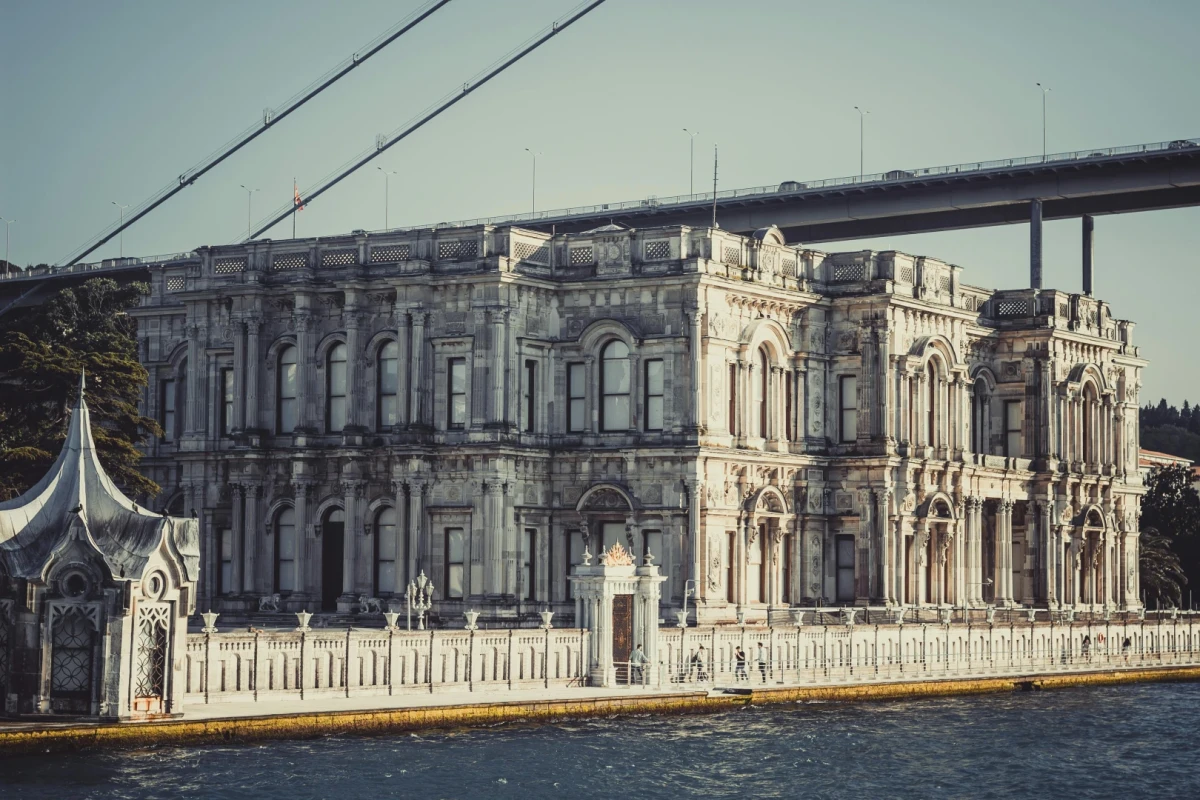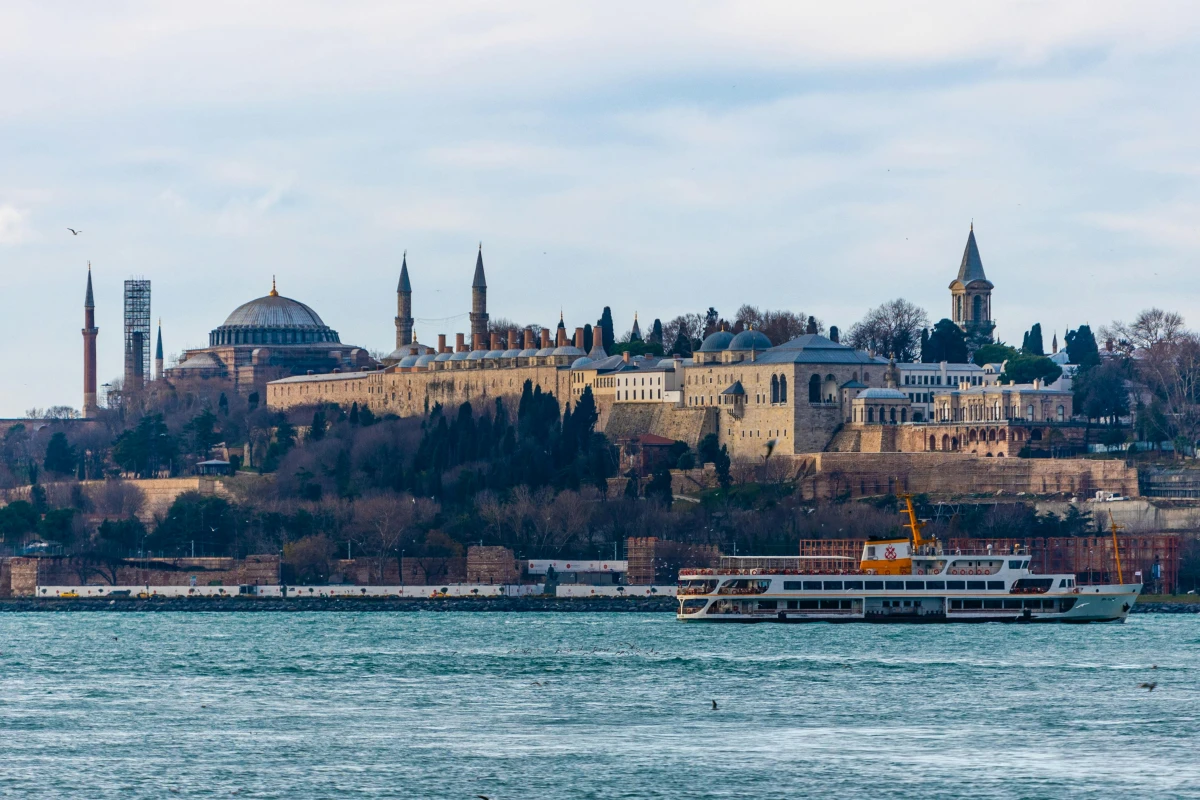Küçüksu Pavilion
A Hidden Jewel of Ottoman Refinement on the Bosphorus
A Royal Stop Between Forest and Sea
Located between Anadolu Hisarı and the lush green hills of Göksu, Küçüksu Pavilion (Küçüksu Kasrı) may be one of the lesser-known gems of the Bosphorus, but it radiates imperial charm. Originally developed as an imperial recreational garden under Sultan Murad IV, the area was once called the "Silver Cypress" grove, cherished for its serenity and natural beauty.
The current structure was commissioned by Sultan Abdülmecid and completed in 1857, designed by Nikogos Balyan, a member of the famed Balyan family of architects. It served not as a palace, but as an elegant hunting and resting lodge for the sultans on day trips.
Architectural Grace in Miniature
Though smaller than its counterparts like Dolmabahçe or Beylerbeyi, Küçüksu is intricate and refined, reflecting neo-baroque influences paired with Ottoman stylistic traditions. The two-story marble structure sits directly along the Bosphorus, offering sweeping waterfront views.
The interior dazzles with ceiling frescoes, Bohemian crystal chandeliers, and Hereke silk carpets. Unlike other imperial residences, Küçüksu was never intended for overnight stays—there are no bedrooms. Instead, it's a lavish stopover for daytime leisure, showcasing the opulence of empire within a compact footprint.
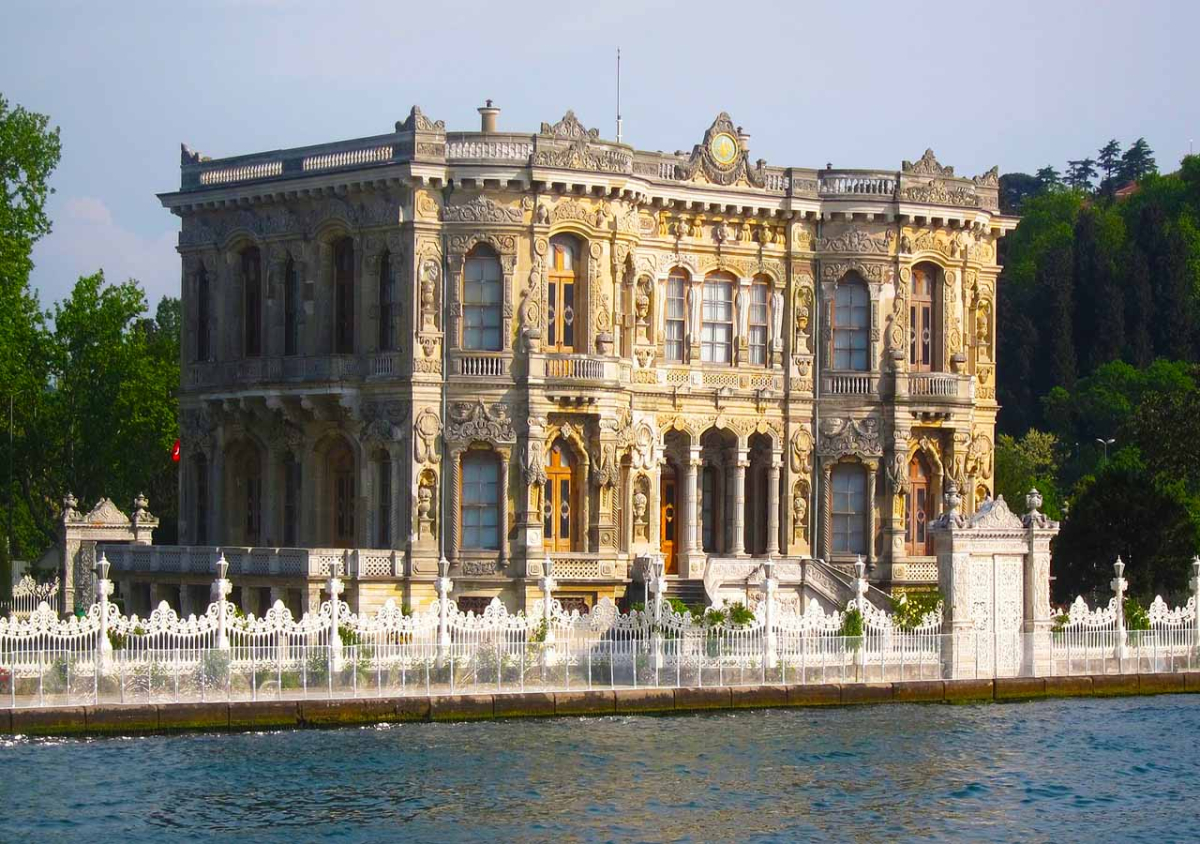
From Picnic Grove to Palace
In the 17th century, the area was so favored by sultans that it earned the poetic name "Bağçe-i Göksu" in literature. During the Tulip Era, it became a place of elite entertainment. By the 19th century, Sultan Abdülmecid sought to replace the older wooden pavilion with a grander masonry lodge—both to reflect the empire's refinement and to impress foreign guests arriving by boat.
After the fall of the empire, the pavilion was even used as a state guesthouse during the Republic, before being converted into a museum-palace open to the public.
Delighting Details
The iron gatework and balustrades were crafted in Europe.
Painted ceilings with mythological scenes add a European romantic flair.
The nearby Göksu Creek, once famous for romantic boat rides during the 18th and 19th centuries, enhances the historical ambiance.
📍 Plan Your Visit
📌 Location: Küçüksu Mahallesi, Göksu Caddesi, Beykoz, Istanbul
🕒 Hours: Tuesday to Sunday, 09:00–17:00
❌ Closed: Mondays
🎟️ Tickets: 150 TL per person
🔗 Website: millisaraylar.gov.tr
Why Küçüksu Pavilion Is Worth the Trip
While other palaces dominate headlines, Küçüksu’s charm lies in its intimacy and artistry. Its romantic design, coastal placement, and vivid past make it the perfect stop for history lovers, architecture buffs, and Bosphorus day trippers.


